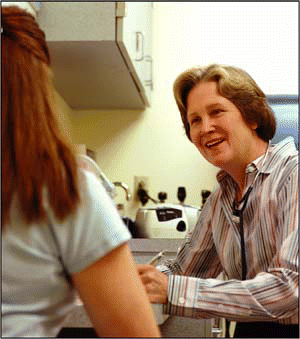However, purchasing home testing equipment could be premature for otolaryngologists unless they prescribe CPAP devices and see Medicare patients, said Edward Weaver, MD, MPH, Associate Professor of Otolaryngology and Chief of Sleep Surgery at the University of Washington and Harborview Medical Center in Seattle.
Explore This Issue
July 2008The new ruling does not necessarily mean that otolaryngologists who don’t currently use home monitoring are going to start using it, said Dr. Wardrop. This is partly because local carrier determinations are not going to let everyone use home testing, she explained.
For example, in Kentucky, these determinations require that only sleep centers that adhere to American Academy of Sleep Medicine (AASM) accreditation rules can offer home testing, said Dr. Wardrop.

Ruling Raises Some Concerns
Although the CMS ruling makes home testing more readily available, some sleep doctors are concerned the care patients receive will not be as good as that at a sleep center, said Dr. Wardrop. They’re worried that other specialists or general practitioners won’t use home monitoring correctly or won’t adequately follow up with CPAP care, she added.
Dr. Davidson thinks that because sleep apnea is an anatomic disorder of the upper respiratory tract, otolaryngologists should be making the initial diagnosis and offering subsequent treatment. It’s a little peculiar that it is primarily treated by neurologists, psychiatrists, and pulmonologists, he said.
Although some turf battles over testing and treatment may arise, Dr. Wardrop sees a great opportunity for cooperative care. Sleep apnea is a chronic disease and requires a chronic disease model of care, she said. It may be possible for primary care physicians and otolaryngologists to work together in the diagnosis and treatment of patients with sleep disorders. In some settings, the primary care physician may order the home testing, and in others, the otolaryngologist or other sleep specialist may take on this role, she said.
Another concern is that the ruling has left the door open as to whether durable medical equipment (DME) companies can offer sleep testing, said Dr. Wardrop.
DME centers that dispense CPAP equipment will likely be capable of providing home sleep testing as well and will contract with physicians to provide the service, explained Dr. Davidson.
There’s concern about companies trying to get into the business and taking advantage of the system, noted Nancy Collop, MD, Associate Professor of Medicine at Johns Hopkins University in Baltimore and Director of the Johns Hopkins Sleep Disorders Center.
Leave a Reply